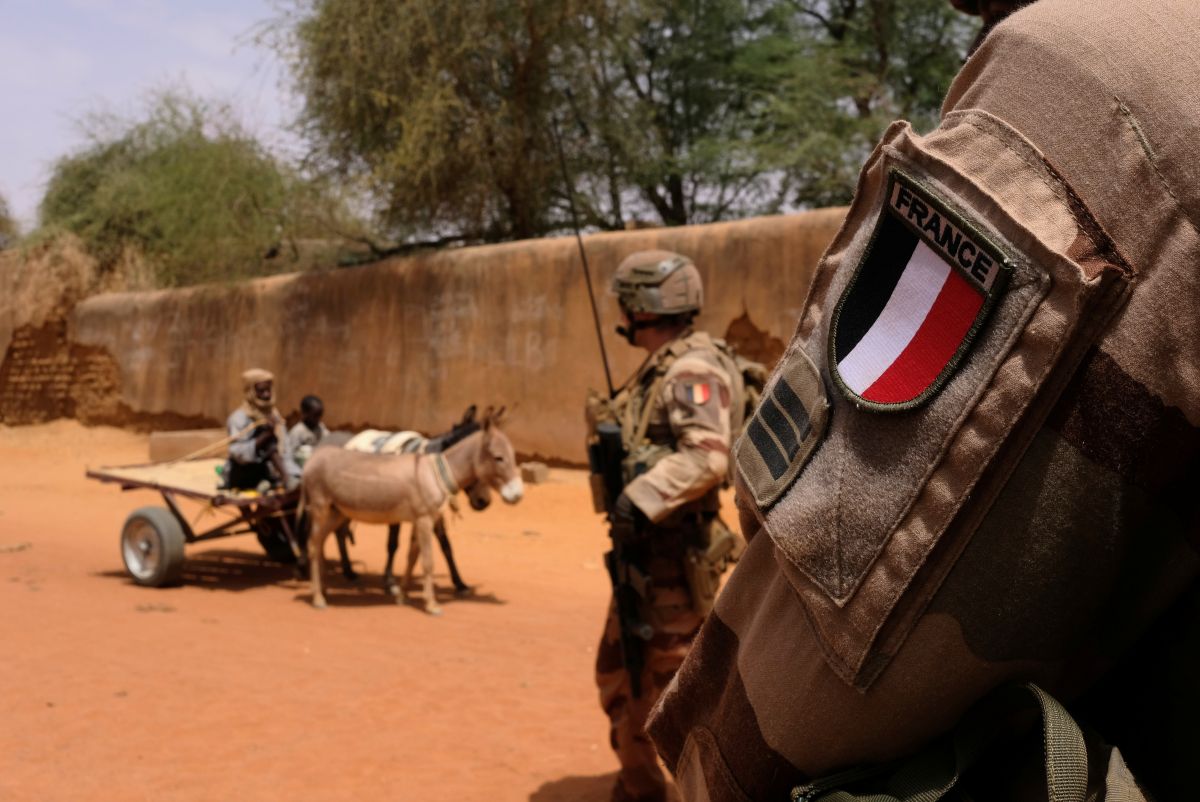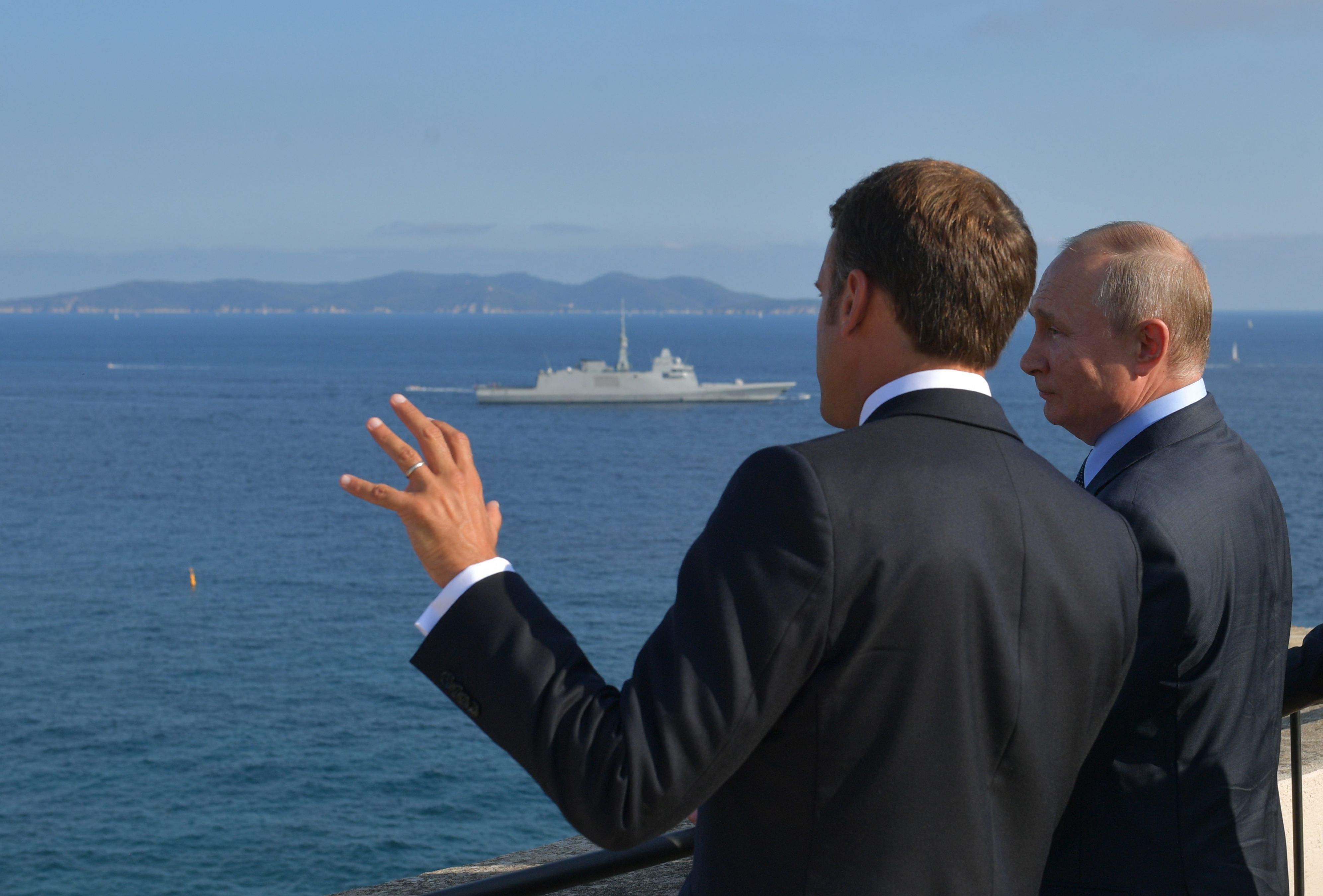No Exit: France on Its Discord with Mali and the Situation in the Sahel
Since the coup d'état in May 2021, Mali’s military authorities have been making unfriendly gestures towards France and pushing for its troops to leave the country as soon as possible. The situation has been exacerbated by Russia, which is supporting the Malian junta through private military companies and inspiring actions that are harmful to France. The rise of anti-French and anti-Western sentiment in the region is hampering France’s efforts to involve its European partners in the operation. Instead of focusing on the fight against terror, France is falling into conflicts with countries in the region and yielding to Russian influence.
 PAUL LORGERIE/Reuters/Forum
PAUL LORGERIE/Reuters/Forum
Since decolonisation, France has sent troops to its former colonies dozens of times to support the local authorities. The ease of the intervention decisions by presidents has encouraged French leaders to reach for this instrument. The French military returned to the Sahel again in 2013 when President François Hollande supported the Mali authorities in repelling an offensive by Islamist militants in the north of the country (Operation Serval). The jihadists’ expansion was one of the effects of the destabilisation of Libya after the fall of Muammar Gaddafi. Serval ended successfully in July 2014 and was transformed into Operation Barkhane, which continues to this day.
Failure of Barkhane
As part of this operation, a French contingent of around 5,000 soldiers, supported by the UK, Canada, and Estonia, is stationed in Mali, Niger, and Chad. It cooperates with the armed forces of these countries, as well as with Mauritania and Burkina Faso, which together form the G5 Sahel regional coalition. France has had tactical success, such as the liquidation of some 2,800 jihadists, including leaders of the local branches of ISIS or Al-Qaeda. The radicals have not been defeated because they operate in a decentralised manner and have support on the ground, where they are more efficient than the local authorities in carrying out certain functions of the state and seen as less corrupt. Barkhane, which is focused on military objectives, causes resentment among the population of the Sahel countries, but also in France (58 soldiers have lost their lives). Development aid controlled by the French military (€5 billion) has not strengthened state structures (especially in Mali and Burkina Faso), but has increased corruption.
President Emmanuel Macron made efforts to “Europeanise” the presence in the Sahel. These have resulted in the Takuba multinational mission, launched to secure the EU neighbourhood and shape a “common strategic culture” among European states. However, its future is in doubt as the fight against Islamists has been overshadowed by France’s conflicts with the G5 countries (especially Mali and Burkina Faso) and the increasing Russian interference.
Disaster in Relations with Mali
France’s unpopularity in Mali stems from its support for President Ibrahim Boubacara Keïta, ousted in 2020. The military circles that have ruled Mali since then accuse France of using colonial tactics to turn ethnic groups against each other, threatening the unity of the state. Pressure from France to refuse to negotiate with jihadist groups has also been said to delay the peace process. Relations with Mali deteriorated after a fresh putsch in May 2021, with Col. Assimi Goïta at the head of the junta. Seeking to centralise and monopolise power, the military broke a promise to the Economic Community of West African States (ECOWAS) by extending the period until the next free elections from six months to five—and then two—years.
When Macron announced in July 2021 his intention to reduce the French presence in the Sahel, the junta used this to escalate the conflict. The French president wanted the Barkhane contingent to be replaced by local troops and Takuba, while French control of the whole would continue. Although the Goïta group itself wanted to be free of the French presence, it took Macron’s unilateral decision as an affront and announced that the Russian private military company known as the Wagner Group could take over responsibility for fighting the jihadists in Mali.
France saw the start of negotiations with the Wagner Group and the subsequent arrival of around 1,000 Russian mercenaries in Mali at the beginning of this year as a provocation. This is because they had previously been used to push the French out of, among other places, the Central African Republic (CAR). Prior to the Russian invasion of Ukraine, this issue was the subject of a confidential dialogue between France and Russia, and publicly, France, although critical of the mercenaries, tried to play down the importance of their activities. In addition to their military presence, the Wagner Group also carries out anti-French propaganda in the Sahel states, both in media and on social networks. An example of such an attempt, prevented by the French, was a fake mass grave at the abandoned Gossi base that would have been a pretext for France to be accused of causing the deaths of those placed there. The presence of the mercenaries is complemented by other military cooperation, including Russian arms supplies to Mali (Mi-35 helicopters and radars). After 24 February, however, some of the mercenaries were diverted to Ukraine.
In response to the protracted military rule and Malian contacts with the Wagner Group, the French- and EU-backed ECOWAS imposed sanctions on Mali, while Macron in February 2022 announced the gradual withdrawal of 2,000 French troops from the country. The junta accused France of breaking the agreement between the two countries and demanded that it leave Mali immediately. To increase the pressure on France, Mali also terminated its military agreement with France, which means that there is no more legal basis for French soldiers to continue to stay there. The Goïta group accuses its partners of double standards, as France, the G5, and the African Union accepted a coup d’état in Chad (where the Barkhane command and French air base are located) in April 2021. In May, Mali left the G5.
Macron and the Allies
The need for France and some of its allies to leave Mali (the junta forced Denmark to do so, and Sweden followed suit) is weakening the ability to fight jihadists, as the radical groups are now concentrated on the borders of Mali, Burkina Faso, and Niger. The situation is complicated by the coup in Burkina Faso in January this year, as the military there announced a “diversification” of military partnerships. Although relations with France and the EU have not broken down, France cannot be sure whether it will be able to conduct an operation there in the future. Anti-Western and anti-French sentiment is spreading in all G5 countries.
France is moving Barkhane operations from Mali to Niger and Chad, motivated by the welcoming local authorities. In addition to the core of the Barkhane forces, a German contingent of the EU training mission is to be stationed in Niger. At the same time, the Bundestag has kept troops in Mali as part of the UN mission MINUSMA, which is independent of Barkhane, and even increased their numbers from 1,100 to 1,400. However, their involvement on the ground is negligible. Troops from Estonia, Lithuania, and Romania, among others, are also participating in Takuba. These countries have in return received a French military presence on their territory. European allies are concerned though about the lack of strategy and purpose for the continued presence in the Sahel.
Conclusions and Prospects
Military involvement will not lead to stability in the Sahel, and France’s presence in the region loses meaning in the absence of popular support and a credible political project from local elites. However, the withdrawal of its troops is unlikely. It would affect Macron’s credibility as he has convinced the allies of the crucial importance of the Sahel to EU security and wants Takuba to become a “laboratory” for EU strategic autonomy. It would also mark France’s defeat in the face of Russian methods to win influence in places of a traditional French presence and could create associations with the U.S. abandonment of Afghanistan.
The French president will seek to emphasise the good relations with the authorities in Niger and Chad and his desire to intensify military cooperation with the Gulf of Guinea states (especially Côte d’Ivoire, Togo, and Benin). France’s military presence in the Sahel will continue to accustom local elites to external support and reinforce resentment towards the West among the population.
The participation of a dozen European states in the Takuba mission was more out of solidarity with France than out of sharing its diagnosis of the region’s role in relation to the EU. Stabilisation of the Sahel should be primarily in the interest of the countries of the region, such as Algeria. Other European countries may withdraw under the influence of rising anti-Western sentiment in the Sahel. For some Central European states, the French participation in strengthening NATO’s Eastern Flank remains an argument for maintaining their presence in the Sahel.
France’s disregard for the presence of Russian mercenaries in Africa, in order not to burden bilateral relations with this problem, proved to be a mistake. Russia has taken advantage of anti-Western sentiment and the authorities’ fear of destabilisation to damage French interests at the cost of small engagement. France can weaken the Wagner Group by providing military assistance to Ukraine and coordinating with its authorities to neutralise key mercenaries residing on Ukrainian territory.





